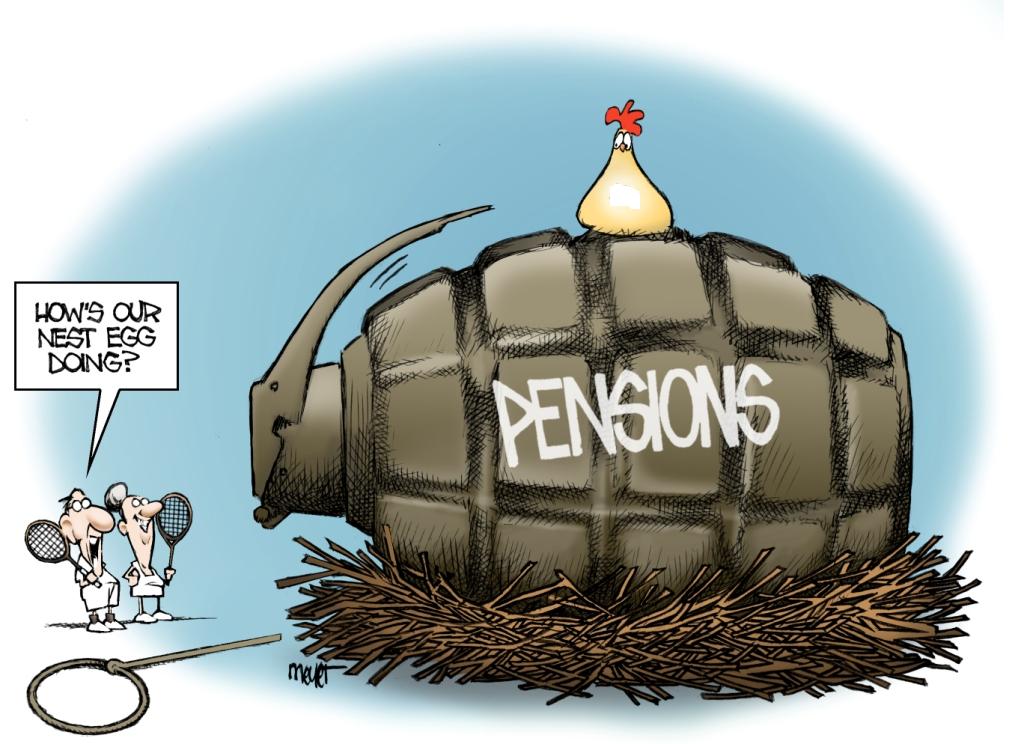How many businesses can withstand a drop in revenues of 50% or more and expect to survive? Few, if any! With oil prices being down by that percentage, expect many of the resource based countries to start defaulting on their debt and thereby crashing the global banking system along with the stock markets. It will cascade!
It was all a house of cards built on an exuberant credit bonanza fueled by unprecedented low loan rates that was doomed from the start. Now here comes the payback - and it won't be pretty.
All things revert to the mean - that's the first law of common sense, just ask Soros!
Arab States Face $94 Billion Debt Crunch on Oil Slump, HSBC Says

Gulf Cooperation Council countries may struggle to refinance $94 billion of debt in the next two years as the region faces slowing growth, rising rates and rating downgrades, according to HSBC Holdings Plc.
Oil-rich GCC states have to refinance $52 billion of bonds and $42 billion of syndicated loans, mostly in the United Arab Emirates and Qatar, HSBC said in an e-mailed report. The countries also face a fiscal and current account deficit of $395 billion over the period, it said.
Expectations that these funding gaps "will be part financed through the sale of sovereign U.S. dollar debt will complicate efforts to refinance existing paper that matures over 2016 and 2017," Simon Williams, HSBC’s chief economist for the Middle East, said in the report. "With the Gulf acting as a single credit market, the refinancing challenge will likely be much more broadly felt" and "compounded by tightening regional liquidity, rising rates and recent downgrades," he said.
READ MORE
The Game Changed in Venezuela
People continue to be arrested merely for protesting, and a long established local Human Rights NGO makes an urgent plea for an investigation into widespread reports of torture of detainees. There are now dozens of serious human right abuses: National Guardsmen shooting tear gas canisters directly into residential buildings. We have videos of soldiers shooting civilians on the street.
Washington warns top banks to stay away from Russian bonds
Russia’s dollar-denominated 2023 bond now has a yield of 4.53 percent, sliding from 4.9 percent in September 2013 when Moscow raised $7 billion, data from the Financial Times showed.
According to the WSJ, some bank officials, including those at Citigroup, said they won’t participate. Goldman Sachs and J.P. Morgan Chase say they are still weighing their options.
Moody's Downgrades Brazil Sovereign Rating
Itau Unibanco Holding SA, Banco do Brasil SA and Banco Bradesco SA were among more than two dozen financial firms in Brazil that had credit ratings cut by Moody’s Investors Service after it stripped the nation of an investment grade this week.
Ratings affected in the latest shakeup included baseline credit assessments and bank deposit and debt ratings, New York-based Moody’s said Thursday in a statement.
While the moves were prompted by the change in the sovereign rating, Brazilian banks’ creditworthiness “may also face downward pressure if Brazil’s very challenging operating environment results in a deterioration of their financial fundamentals, particularly profitability, asset quality and capitalization,” Moody’s said.
Brazil was cut two steps below investment grade, to Ba2, with a negative outlook, a sign the rating might go lower. The downgrade came one week after Standard & Poor’s reduced Brazil’s rating to BB, also two steps below investment grade with a negative outlook. The moves reflect Brazil’s worst recession in more than a century, a nationwide corruption scandal and declining demand from China for Brazilian commodities.
Why Singapore's Economy Is Heading For An Iceland-Style Meltdown
It has been just five years since the Global Financial Crisis, and the world – in brazen defiance of the lessons of 2008 – is already back to blowing massive bubbles and naively praising the countries that are benefiting from these “fool’s gold” economic booms. The Southeast Asian island nation of Singapore is currently inflating one of the most egregious examples of these post-2009 bubbles, and is displaying parallels to Iceland’s bubble that are causing me to believe that its boom will end in a similar (but not necessarily identical) manner.
READ MORE
http://www.forbes.com/sites/jessecolombo/2014/01/13/why-singapores-economy-is-heading-for-an-iceland-style-meltdown/#346ffdb113cc













